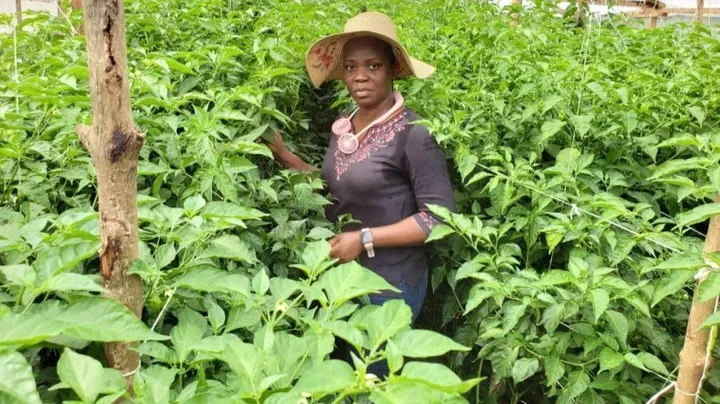
Starting a vegetable business can be a rewarding and profitable venture, even with a modest budget of N20,000. Vegetable farming is not only accessible regardless of your education or financial background but also offers potential for growth and success.
If you're considering a future in farming, here is a straightforward guide to help you kickstart your vegetable business with little money.
Getting Started:
1. Understand Your Market
Before diving into vegetable farming, it's crucial to identify your target customers. As a beginner, you can start by catering to your local neighbourhood. Over time, you can expand your reach to supermarkets, restaurants, and caterers. Knowing who you are selling to will help you tailor your production and marketing efforts.
2. Choose a Suitable Space
You don't need a large area to start; a small space in your backyard or garden will suffice. Ensure the soil is fertile by conducting a simple test: dig a hole, fill it with water, and observe how well it drains. Good drainage is essential for healthy vegetable growth.
3. Prepare Your Soil and Plant
Select a sunny spot for your vegetable garden as most vegetables require ample sunlight. You can start with easy-to-grow vegetables like jute leaf (ewedu), spinach, and pepper. Dry your seeds well before planting to ensure better germination. With N20,000, you can afford seeds, basic tools, and initial supplies.
4. Invest in Essential Tools
Basic gardening tools are necessary for maintaining your vegetable farm. These include a watering can rake, hoe, and trowel. Regular watering and soil management are key to successful vegetable farming.
5. Use Organic Manure and Pesticides
To boost vegetable growth, use organic manure to enrich the soil. Apply pesticides as needed to protect your crops from pests, but always follow safety guidelines.
Marketing is crucial, even for a small-scale vegetable business. Utilize both traditional methods and digital platforms to reach potential customers. Post videos and pictures of your vegetables on social media to attract buyers. Packaging your produce in transparent bags can make your products more appealing.
7. Manage Your Produce
Vegetables can spoil quickly, so effective management and timely sales are important. Use containers, sacks, or plastic buckets to store and transport your produce.
8. Maintain Your Garden
Regularly remove weeds, as they can hinder the growth of your vegetables. Keep your garden clean and well-maintained to ensure a healthy crop.
















Comments